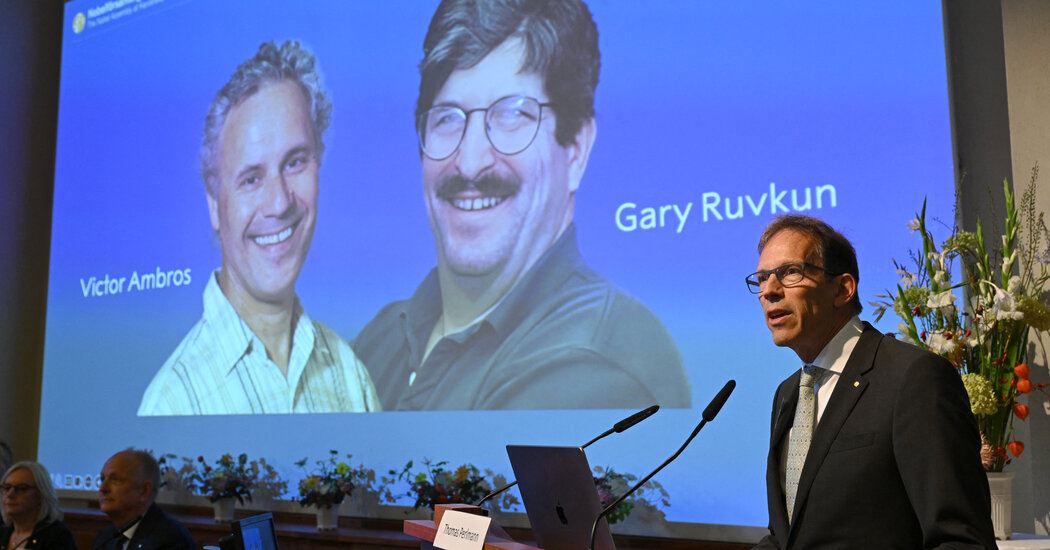The prize was awarded for their discovery of microRNA, which helps determine how cells develop and function.
Victor Ambros and Gary Ruvkun were awarded the Nobel Prize in Physiology or Medicine on Monday for the discovery of microRNA, which plays a crucial role in determining how organisms develop and function.
MicroRNA is a class of tiny RNA molecules, Nobel Prize officials said. The discovery revealed a new principle of gene regulation that is crucial for multicellular organisms, including humans.
Gene regulation determines differences between types of cells, and if it goes off track it can lead to diseases such as cancer, diabetes, or autoimmunity, the Nobel Committee said. Researchers now know that the human genome codes for over 1,000 micoRNAs, which are important to the development and function of organisms.
Mr. Ambros is from Hanover, N.H. and is the Silverman Professor of Natural Science at the University of Massachusetts Medical School in Worcester, Mass. Mr. Ruvkun, from Berkeley, Calif., is a professor of genetics at Harvard Medical School.
This is a breaking news story that will be updated.
